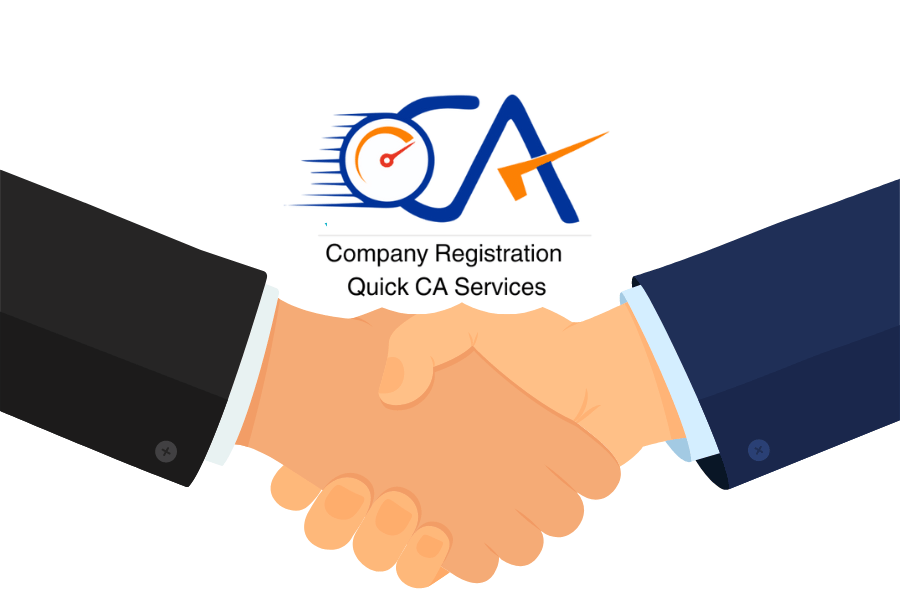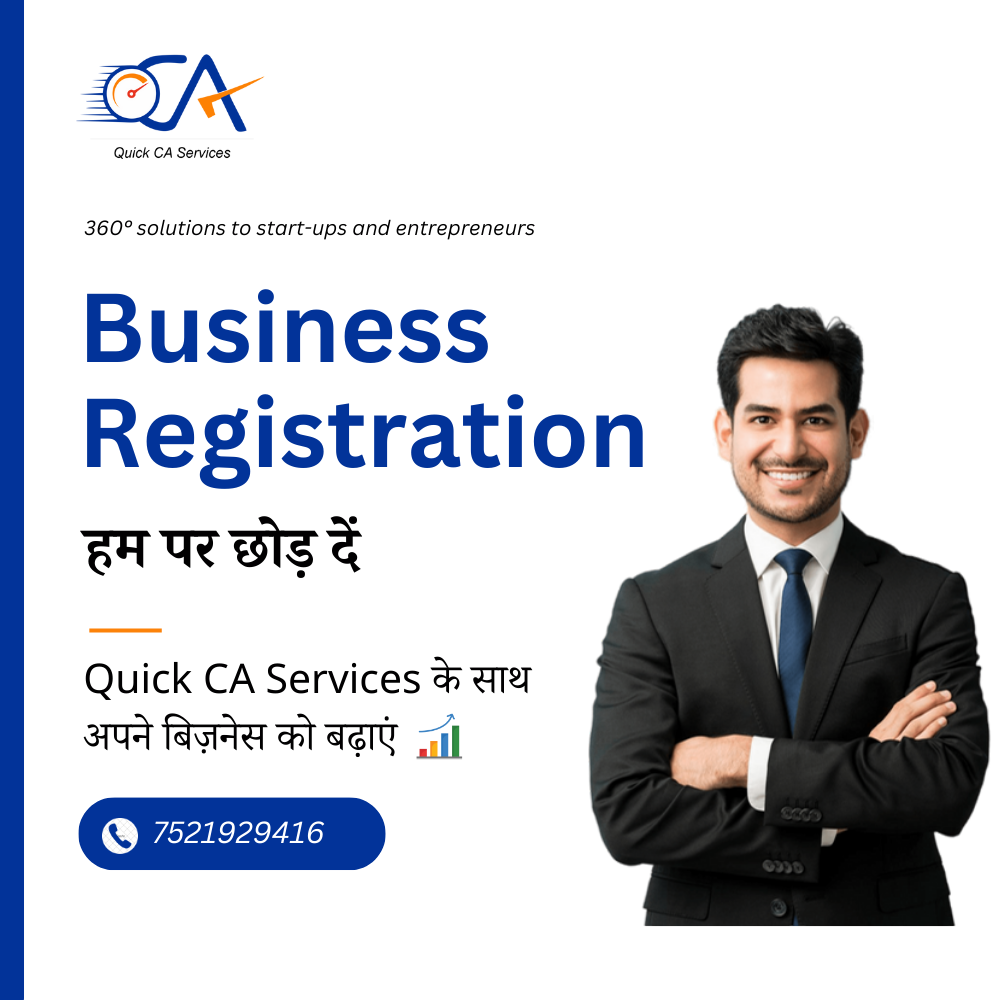The Best Sole Proprietorship Firm Registration Service in India
Struggling to find the perfect Sole Proprietorship Firm Registration Service in provider India? If yes, you’re in the right place. Think of it as the backstage pass that lets you rock the stage as the sole owner and operator of your business.
We’re talking about getting your name on the map of entrepreneurship. Legally speaking, and laying the groundwork for your entrepreneurial dreams to take flight. Sounds exciting, right? Stick with us, and we’ll break it down for you step by step.
Picture this: You’re undertaking your entrepreneurial journey. Ready to conquer the business world with your brilliant ideas? Startups face problems with this because they choose the wrong partner for registration. That’s why picking the perfect partner in paperwork is crucial.
We are here to help you with the registration process. We do not just fill out the forms; we are your co-pilot on this adventure. So, why settle for anything less than the best? Choose us, and watch your business dreams soar!
Documents for Sole Proprietorship Registration Online in India

To register a sole proprietorship in India, you will need the following documents:
- Identity Proof: You will need to provide valid identity proof such as a PAN card, Aadhaar card, or Passport.
- Address Proof: You will need to submit a proof of address, which can be a Utility or Water bill, rental agreement, etc.
- Passport-sized Photograph: You will need to provide the latest passport-sized photograph.
- Bank Account Proof: You will need to provide proof of your bank account. Such as a bank statement or canceled cheque.
- Business Name Proof: If you have a specific name for your Business. You can provide a document that proves the name of the business. Business Address Proof: You need to submit a document of business address.
Advantages of Sole Proprietorship
1. Easy and Inexpensive Setup: Establishing a sole proprietorship is relatively simple and cost-effective. There are the tiniest legal formalities and paperwork involved.
2. Full Control: As the sole owner of the business you have full control.
3. Direct Profits: You are entitled to keep all the profits generated by the business. There is no need to share the profits with partners or other shareholders.
4. Flexibility: Sole proprietorships offer flexibility in terms of operations and management. You have the freedom to adapt and change your business strategies.
5. Tax Benefits: Sole proprietorships are not subject to separate corporate taxes. Instead, the business income is reported on the owner’s tax return.
Disadvantages of Sole Proprietorship
1. Unlimited Personal Liability: The Proprietor is liable for all the debts and Profit.
2. Limited Resources: Sole proprietorships may face challenges in raising funds or obtaining financing. As the business is solely dependent on the owner’s resources and creditworthiness.
3. Limited Expertise: The sole proprietor, has to handle all aspects of the business. This can be overwhelming, especially if you lack expertise in certain areas.
4. Lack of Continuity: The existence of a sole proprietorship is directly tied to the owner. If the owner decides to quit or pass away, the business may cease to exist, unless it is transferred or sold.
5. Difficulty in Scaling: Sole proprietorships may face challenges in scaling the business. Due to limited resources. expertise, and the potential lack of credibility compared to larger business entities.

Registering a Proprietorship Online through Quick CA Services
You can easily register a proprietorship online through Quick CA Services using the PAN and Aadhaar card of the business owner. The process includes obtaining GST and UDYAM registrations, opening a zero-balance business current account, and accessing LEDGERS Accounting Software.
- PAN Card for Proprietorship Firm: Since a proprietorship is not a separate entity, the business owner’s PAN card is used for proprietorship transactions.
- Obtaining GST Registration for Proprietorship: GST registration for a proprietorship, which is part of the service provided by Quick CA Services, requires documents such as PAN, Digital Signature Certificate, consent by the proprietor, photograph, bank account details, and relevant authorizations.
- Obtaining UDYAM Registration for Proprietorship: After obtaining GST registration, UDYAM registration is facilitated by Quick CA Services through the submission of an Aadhaar card, PAN card, and GST certificate to the government.
- Bank Account for Proprietorship: A current account for a proprietorship is opened in the business owner’s name using their PAN. Documents such as a GST registration certificate or Shop & Establishment Act license are submitted for account creation.
- Obtaining Shops & Establishment Act License for ProprietorshipThe process for acquiring a Shop and Establishment registration certificate varies by state and can be completed online or offline within 2 to 3 weeks in most cases.
- Timelines for Sole Proprietorship Registration: While registration through Quick CA Services typically takes less than 15 days, actual timelines may vary based on government and bank processing times.
Proprietorship Business Activities
Proprietorships can engage in various business activities as long as they align with small-scale operations. However, certain sectors require specialized approval.
Compliances for Proprietorship
Compliances for a sole proprietorship include income tax filing, business income declaration through ITR-3 or ITR-4, GST return filing (if registered), and TDS returns if applicable based on employee count or purchase thresholds. Additional compliance requirements may vary by industry and location.
FAQs Solo Proprietorship Registration in India
A proprietorship firm is a business structure where a single individual owns and manages the entire business. The proprietor is personally responsible for all debts and obligations. It’s a popular choice for small businesses and startups in India due to its simplicity in setup and operation.
There are four main types of proprietorship in India: Sole Proprietorship, One Person Company (OPC), Registered Proprietorship, and Unregistered Proprietorship. The choice depends on the proprietor’s needs, goals, and resources, each having its advantages and disadvantages.
Proprietorship and firm are often used interchangeably, but there’s a subtle difference. Proprietorship is a business structure where a single individual owns and manages the business, while a firm involves a group of individuals sharing ownership, profits, and losses.
No, there is no certificate of Incorporation given for proprietorship.
As the sole proprietorship and the proprietor are the same, the individual only needs to file Income-tax returns and GST returns for the proprietorship.
No, there is no minimum requirement to start a sole proprietorship in India.
A sole proprietorship exists as long as the proprietor is alive and desires to run the business.
Yes, the owner of a sole proprietorship is considered the same as the sole proprietor.
Licensing requirements vary by state. For example, in Maharashtra, a Shop and Act license is required, while West Bengal may require a trade license.
The proprietor owns, controls, and manages the sole proprietorship, having complete authority over its operations.
No, a separate PAN card cannot be obtained for a proprietorship. The proprietor’s PAN card is used for business transactions.
Yes, a proprietorship can be operated from home as long as it complies with applicable regulations.
Any official document with the proprietor’s name, photo, and address, like a driving license or passport, can be used. Utility or electricity bills in the proprietor’s name are also accepted.


